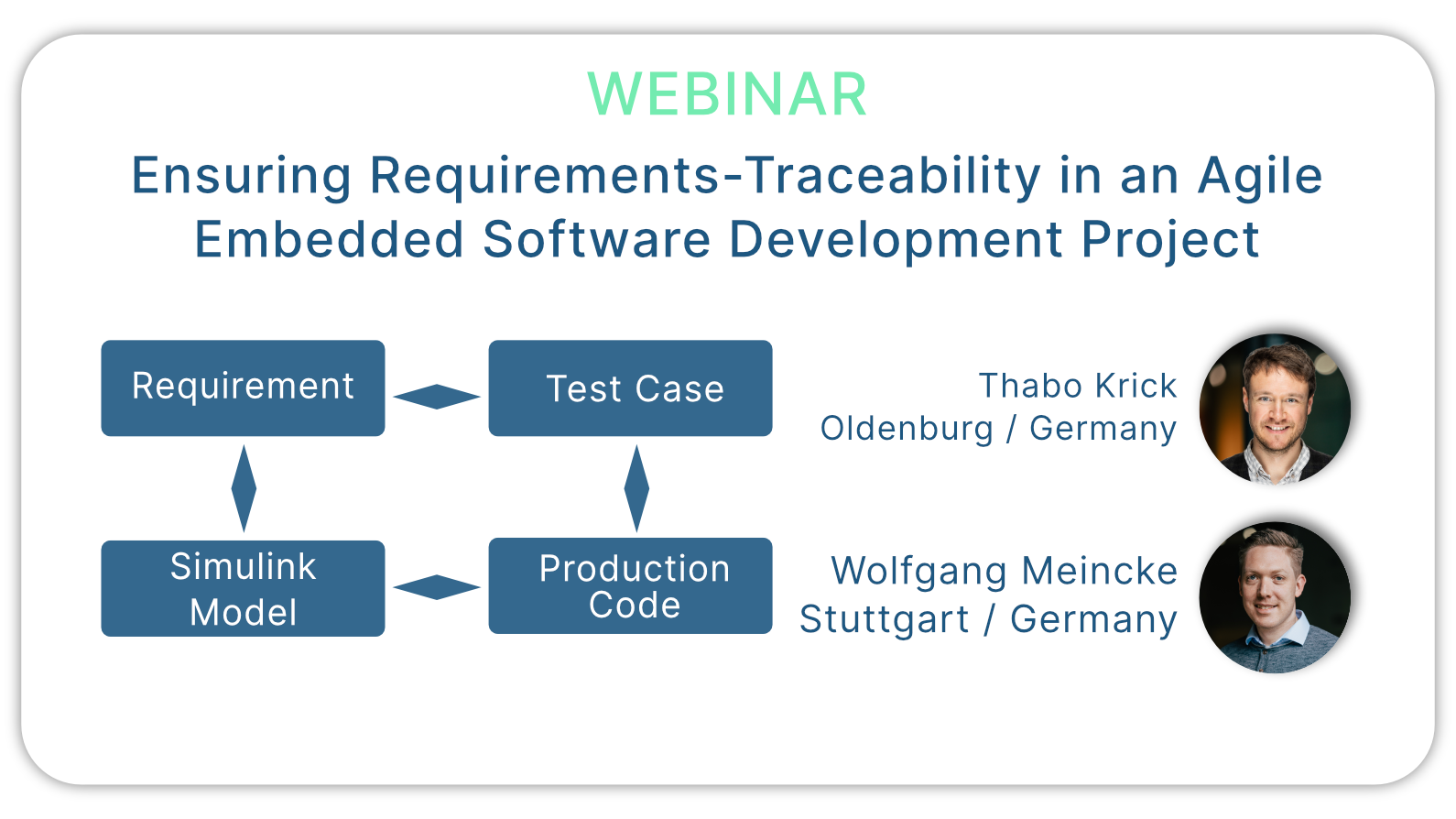
April 27th, 10:00 CET (Berlin) / 4AM EST (Detroit) / 13:30 IST (Bangalore) / 16:00 CST (Beijing)
April 27th, 15:00 CET (Berlin) / 09:00 EST (Detroit) / 18:30 IST (Bangalore) / 21:00 CST (Beijing)
Developing safety critical systems in the automotive domain to standards (like ISO 26262) requires managing traceability between different types of artifacts in the development process. This traceability is particularly important when it comes to requirements and test cases, to ensure the following questions can be answered with confidence and accuracy at any project stage:
- Did we create test cases for every requirement?
- Which requirement(s) is/are covered by a particular test case?
- Does the model and/or production code violate any requirements?
- How can we transparently adapt models and test cases when requirements change?
Exchange formats like Excel or ReqIF can be used to connect the tools, but they become increasingly inefficient and error prone, especially as the software development process becomes more agile. The introduction of manual data import/export steps could compromise the consistency of the data.
In this free Webinar, Wolfgang Meincke and Thabo Krick will show you how to ensure an efficient connection and bi-directional traceability between your test tools and ALM/PLM solutions within an agile Model-based development process. While the presented strategy is generic, we will focus our live demo on a toolchain which consists of Siemens Polarion, Simulink, dSPACE TargetLink and BTC EmbeddedTester.


